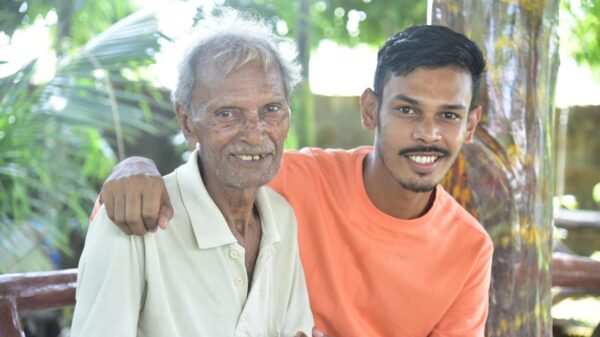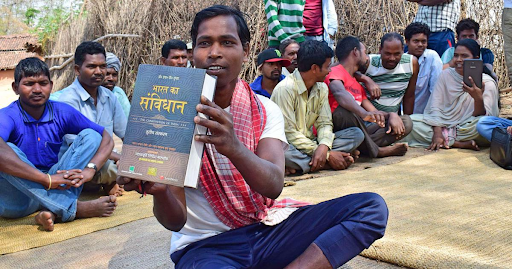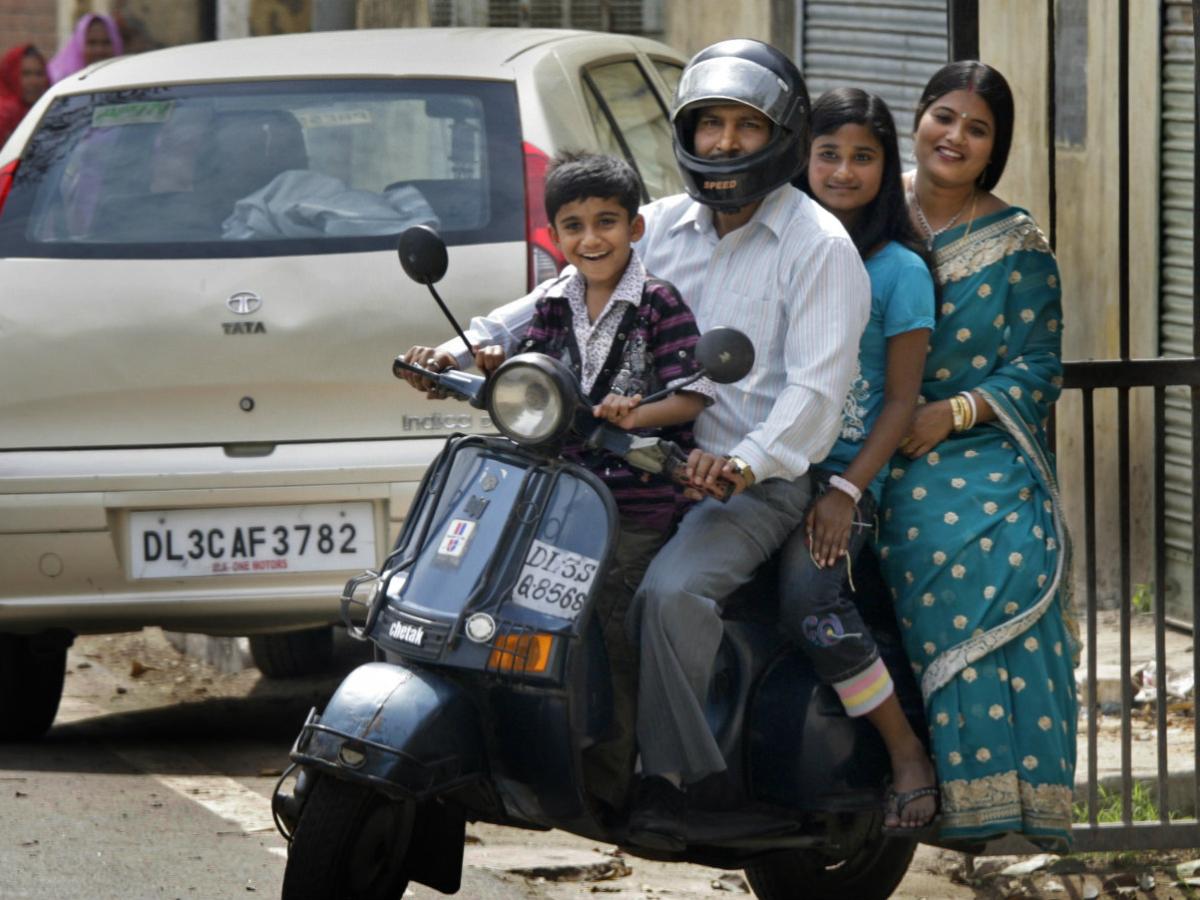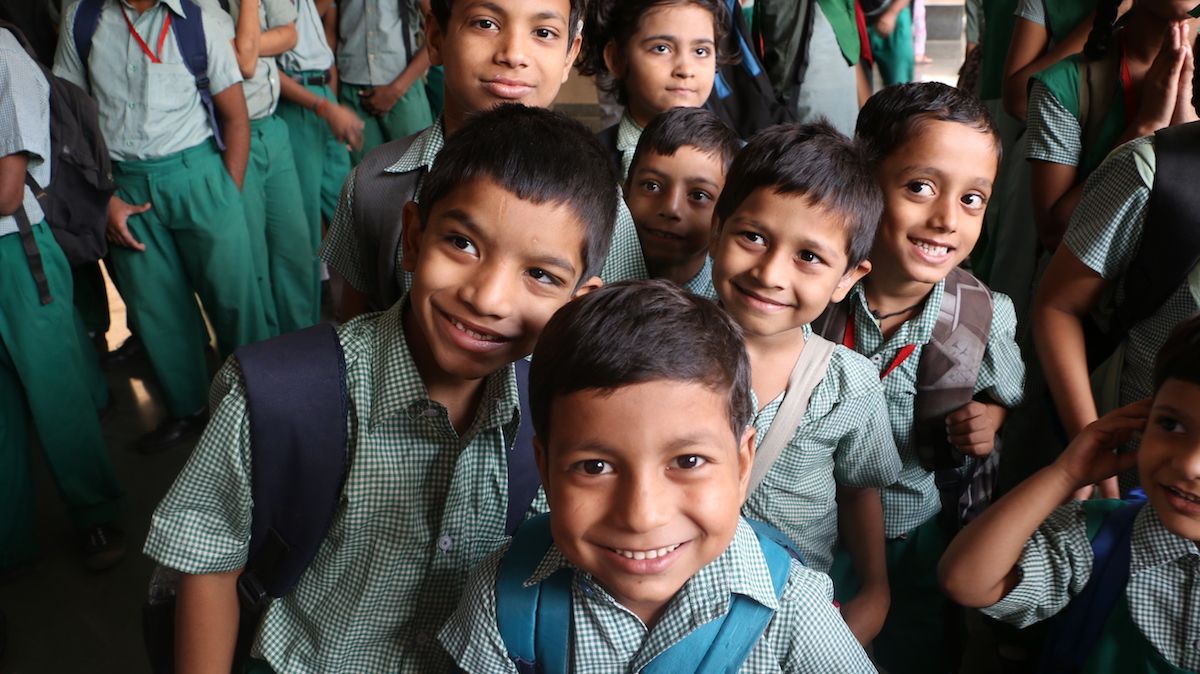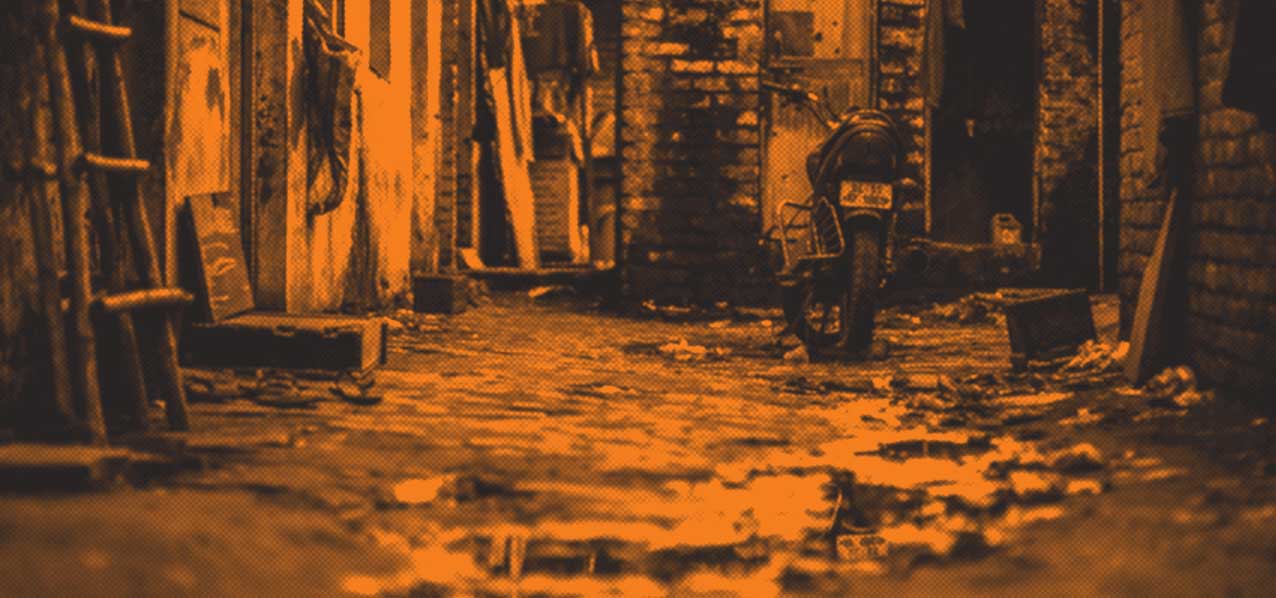The mostly filthy and humiliating occupation of Manual Scavenging is still widely practiced and has been practiced since Ancient times in India. Manual scavenging is unsafe removal of raw,untreated, human excreta from the pits of simple pit latrines manually . However The definition for Manual Scavenging in India have been also officially given through Indian laws from 1993 and it runs as follows:
“Manual scavenger” means a person engaged or employed, at the commencement of this Act or at any time thereafter, by an individual or a local authority or an agency or a contractor, for manually cleaning, carrying, disposing of, or otherwise handling in any manner, human excreta in an insanitary latrine or in an open drain or pit into which the human excreta from the insanitary latrines is disposed of, or railway track or in such other spaces or premises, as the Central Government or a State Government may notify, before the excreta fully decomposes in such manner as may be prescribed, and the expression “Manual Scavenging” shall be construed accordingly.
The exact number of manual scavengers in the country would be a real embarrassment for authorities as this practice of Manual Scavenging has been technically illegal after the laws were passed with regard to the Manual Scavenging. Over 20,500 people have been identified as involved in Manual Scavenging in India, with Uttar Pradesh accounting for nearly 6,000 of them, according to a new survey being conducted by the Union Ministry of Social Justice and Empowerment across 18 states.
Genesis of Manual Scavenging in India
Manual scavenging in India is the practice which dates back to ancient times. If we go through the sacred scriptures and other literature, scavenging practice has been there since the beginning of civilization in India . While the roots of this practice have been deep in caste based systems . Mughal women under Purdah had enclosed toilets that needed to be scavenged. Under British India, when the first municipalities were inducted, Manual Scavengers were employed to collect waste from public toilets. Manual scavengers are generally from the lower caste group. Even within these communities ,it is the lowest among the sub – castes .
Effects of Manual Scavenging
Manual scavengers face inhuman repercussions of being in the profession. It affects their physical and social well being to an unfathomable extent and hence results in a deprived mental state. It is important to analyze their problems from the purview of different dimensions. Manual Scavengers have the kind of work that ultimately have grave and serious kind of effects not only on their health but also they have to face structural violence ,caste and gender discrimination and the last but not the least is social discrimination .
- Physical Consequences
The Manual Scavengers get exposed to hazardous gases as hydrogen disulfide, carbon (IV) oxide, ammonia, and methane. The continuous exposure to these gases lead to the death of Manual Scavengers . Another major health concern is the musculoskeletal disorder such as osteoarthritis. Exposure to infections in the sewer is also common due to the numerous bacteria residing in the sewers. The common infection is the Leptospirosis which is an occupational disease in people who are in contact with an animal such as the pigs and their refuse. The workers in the sewer also come in contact discharges from rodents that are found in the sewers and may be infected with leptospirosis. Other health-related problems include dermatitis, Helicobacter pylori infection that causes gastric cancer, and respiratory problems.
- Social Consequences
Caste discrimination and the job condition can cause them to be exposed to physical violence. Furthermore, the culture in India on caste is used to justify violence against them. However the most of Manual Scavengers are of opposite sex and generally belong to the lower caste . The caste is regarded as a lower class and is excluded from moving to a better occupation.They are known as Bhangis in Uttar Pradesh and Gujarat, Phakis in Andhra Pradesh , Balmiki in Haryana and Sikilairs in Tamil Nadu . The term Bhangi literally means “Broken Identity” As a result, Their caste-oriented jobs reinforces the social stigma that they are unclean or “untouchable” Meanwhile this thinking widespread discrimination. Female workers are involved in cleaning of the dry. Similarly male and females clears the excreta from open defecation sites, gutters, and drains, Also, the marginal caste from rural areas moving to urban areas to seek a better livelihood always end up in the same occupation. Since most Manual Scavengers are mentally stigmatized by the societal and community because of their job. They are regarded as untouchable and they are made to accept this condition . Which ultimately takes this problem much more deeper and deeper as their children are also face discriminated against by choosing the same job as their parents are doing.
- Mental Consequences
Being the Manual scavenger and doing this work for any person is not easy . They are always treated so badly and harassed by the higher caste members which ultimately led to a great impact on their mental health .They are Mentally so perpetuated that their mental stigma reinforces them to think that they are unclean and untouchable .They are Mentally tortured. Mental torture goes beyond the limits they start thinking that we will not be allowed to live in the area. They will not be allowed to earn money by any other means . They live in fear of getting killed if they touch the higher caste which ultimately led them to go in the depression and sometimes they took the step of ending their lives by suicide.
What Are Indian laws Related To Manual Scavenging:
The first and foremost legislation or provisions with regard to the manual scavenging in India started taking place eventually and suddenly after the independence of India although they were not directly supposed to be the laws or provision with regards to the manual scavenging but indirectly they mean the same.
- This first step was taken in 1955 by introducing the act of The Protection of Civil Rights Act, initially known as Untouchability (Offences) Act. Which irradicated the discrimination that were happening against these manual scavengers and other lower caste citizens by making the practice of untouchability an offence.
- After this The Scheduled Castes & Scheduled Tribes (Prevention of Atrocities) Act, 1989, are the earliest legislations that made the practice of untouchability a cognizable and non-compoundable offence.
- The next Act passed with regard to the manual scavenging is The Employment of Manual Scavengers and Construction of Dry Latrines (Prohibition) Act, 1993, formally prohibited the construction of dry latrines and employment of manual scavengers.
- After 1993 still there were Manual Scavenging practices going on ,but the National Commission for Safai Karamcharis Act, 1993, was a welfare legislation passed to monitor implementation of schemes for sanitation workers and also address their grievances.
However, it was only in 2013, when both houses of the Parliament unanimously passed,
- The Prohibition of Employment as Manual Scavengers and Their Rehabilitation (PEMSR) Act which outlawed the practice of Manual Scavenging completely. This was the legislation that we normally can refer to as shelter legislation that aimed to look at the issue holistically. PEMSR Act, 2013, prohibits the employment of manual scavengers, construction of dry latrines, and manual cleaning of septic tanks and sewers without protective equipment. It was the first legislation that identified the links between scavenging as a profession and societal caste hierarchy.
There is a sound vigilance mechanism in place and offences are non-bailable. The Act overrides all previous state laws on manual scavenging. It is also the first legislature to have some concrete notion on rehabilitation of manual scavengers. In addition to that not only these various Acts and legislation were formed for the betterment of these manual scavengers but also there are provisions and articles for these people .
In constitution of India Article 14 provides all the citizens the Right to Equality , also the Article 17 gives the Right to Abolition of untouchability , similarly Article 21 Protection of life and personal liberty, Article 42 provides Just and humane conditions of work , Article 46 provides Promotion of educational and economic interests of scheduled castes, scheduled tribes and weaker sections. These are various articles through which these issues may be invoked .
Reality Of Manual Scavenging:
However, in spite of so many legislations, the practice continues unabated for the most part. The practice of Manual Scavenging, has been officially banned since decades in India, and continues with impunity in several States.
- An earlier survey conducted over a period of three years (2014-17), based on figures provided by states, had estimated there were 13,770 manual scavengers in the country, officials said.
- Some states like Gujarat, Kerala and Maharashtra had even denied the existence of persons engaged in manual scavenging in their territories, however, the latest ongoing survey has revealed that Manual Scavenging was prevalent even in these states. The recent survey, which started in February and is ongoing, will cover 170 districts across the 18 states, the officials said.
- The latest Socio-Economic Caste Census data released on July 3 reveals that 1, 80, 657 households are engaged in this degrading work for a livelihood.
- The number of people killed while cleaning sewers and septic tanks has increased over the past few years .2019 saw the highest number of manual scavenging deaths in the past five years. 110 workers were killed while cleaning sewers and septic tanks ( Report was Published in The Hindu e Paper on 16 Feb ,2020 ) .
- The latest survey has so far identified 20,596 manual scavengers across the 18 states with UP accounting for 6,126 followed by Maharashtra with 5,269 and Karnataka with 1744, said a senior official from the National Safai Karamcharis Finance & Development Corporation (NSKFDC), which is coordinating the survey. ( Report published in Economic Times on Oct 02, 2018).
- Another report with regards to the reality of elimination of Manual Scavenging was totally disagreed by the report that was put forth by the Conduct of National Survey in 18 states all over India which suggests that till January 31 ,2020 a huge whopping number of manual scavengers have been identified , as per the report there are 48,345 manual scavengers identified .
Those who are associated with the Manual Scavenging are still facing grievous problems in spite of being in force the various legislations still these people face the various types of discriminations of various kinds. There are always dangers as if we see the reports or statistics from the previous years to current we still there are mass deaths occurring in the societyThis practice has also created a caste and class system and this type of class of society have been made to live the life like they are not human beings and most cruel and harassed discrimination is done with this type of class of society. The authorities are trying to change the situation and eliminate the Manual Scavenging but still the authorities face the shame to officially eradicate the practice of manual scavenging which ultimately led the practice of untouchability to go on still.
Manual scavenging practice as in modern times still exists and it led directly or indirectly to the practice of caste and class system discrimination .The practice of Manual Scavenging put a label on a particular type of community as they did not have any alternative employment to renounce the Manual Scavenging. Despite the official ban on this practice still some people are involved in that so Government should apply these laws strictly and completely prohibit this practice .They should provide them with alternative employment These should not only be on papers it should be applied on ground so that there should not be any kind of discrimination happening ,and the important human lives could be saved


